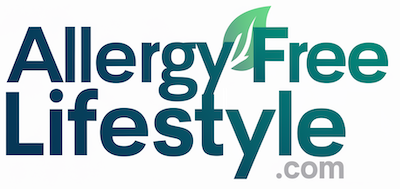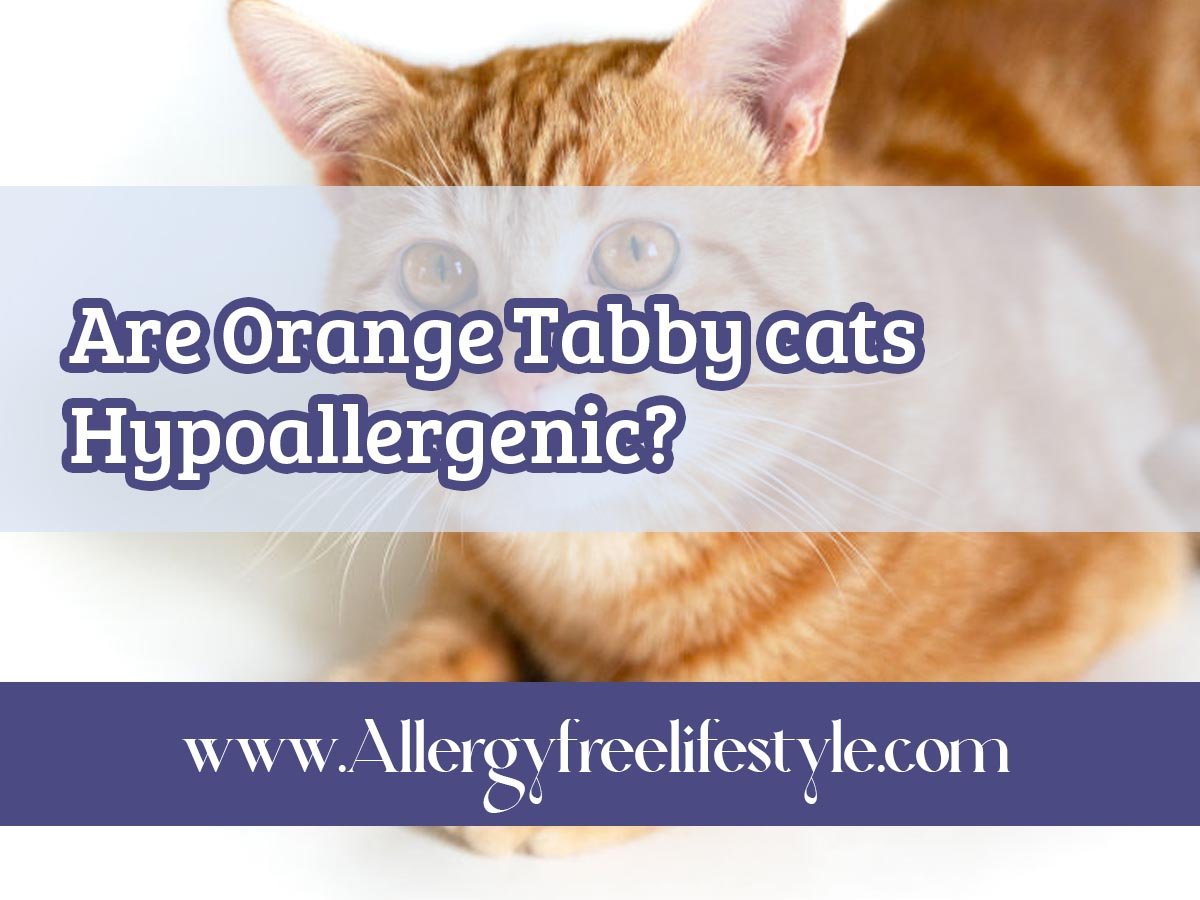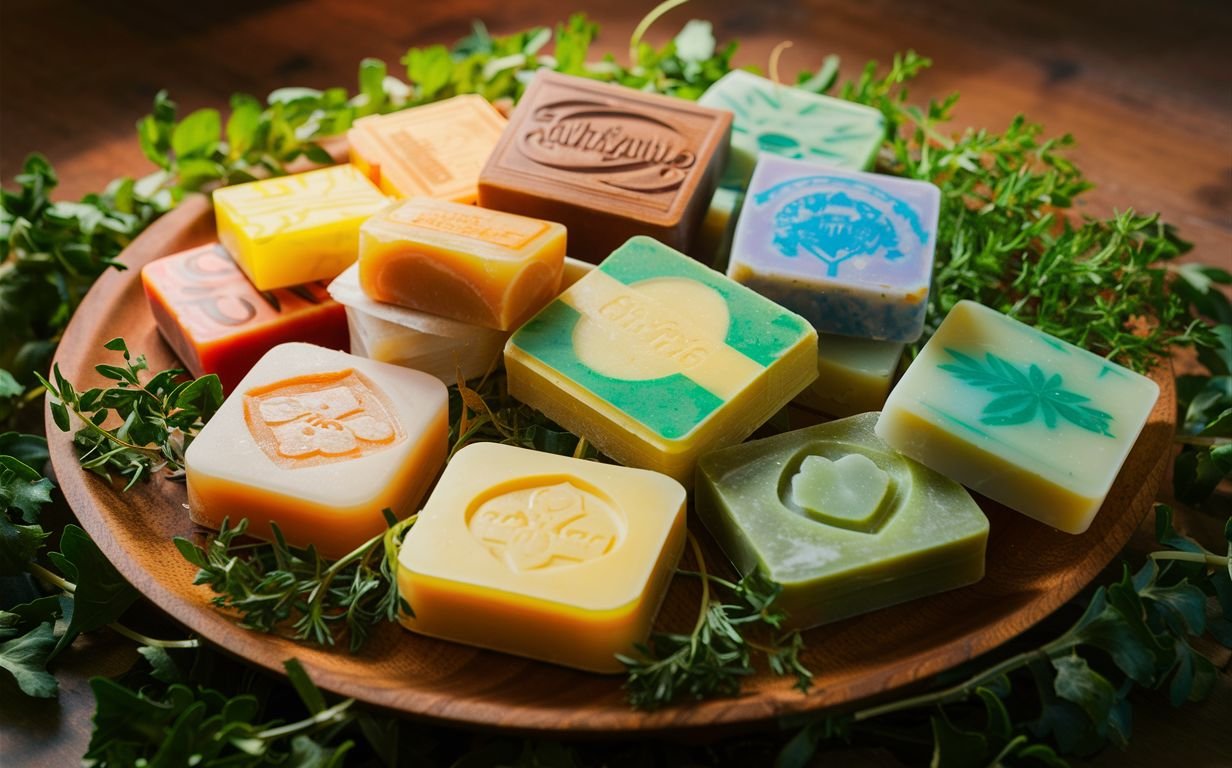
In the quest for skincare products that are gentle yet effective, the term “hypoallergenic” frequently emerges, especially in the context of soap. Hypoallergenic soap represents a beacon of hope for sensitive skin, promising a cleansing experience free from irritation, but you’re probably wondering what hypoallergenic soap is. Don’t fret; this article delves into what hypoallergenic soap is, its significance, the science behind its formulation, and tips for selecting the best product for your skin.
What Is Hypoallergenic Soap?
Hypoallergenic soap is designed to minimize the risk of allergic reactions and skin irritation. The term “hypoallergenic” implies that the soap contains fewer allergenic substances than standard products. These soaps are formulated with the needs of sensitive skin in mind, avoiding harsh chemicals, fragrances, and additives that are common triggers of skin discomfort.
The Importance of Hypoallergenic Soap
Regular soaps can exacerbate skin issues for individuals with sensitive skin, eczema, rosacea, or allergies, leading to redness, itching, and irritation. Hypoallergenic soaps aim to cleanse the skin effectively while maintaining its natural balance and preventing adverse reactions.
The significance of hypoallergenic soap in daily skincare routines cannot be overstated. Traditional soaps, often laden with harsh chemicals, fragrances, and additives, can be a minefield for sensitive skin, triggering uncomfortable and sometimes painful reactions. This is where hypoallergenic soap becomes not just a preference but a necessity.
Addressing Sensitive Skin Concerns
Sensitive skin is more than an inconvenience; it’s a condition that requires careful management to maintain skin health and comfort. Eczema, for instance, is characterized by dry, itchy patches that can become inflamed and infected if irritated. Rosacea leads to redness and visible blood vessels in the face, which harsh skincare products can exacerbate. Allergies to specific ingredients can cause reactions ranging from mild redness to severe dermatitis. Hypoallergenic soaps, formulated with these conditions in mind, offer a gentler alternative.
The Hypoallergenic Difference
Unlike conventional soaps, hypoallergenic soaps are designed to minimize the risk of allergic reactions and irritation. They are typically:
- Free from harsh chemicals
- Fragrance-free
- Rich in natural moisturizers
Let’s go further and explain why the shift to hypoallergenic soap matters.
Free from harsh chemicals
A growing awareness of the negative impacts of harsh chemicals on our skin drives the movement towards hypoallergenic soaps. Among these problematic ingredients are sulfates, parabens, and phthalates—commonplace in many mainstream soap formulations. Hypoallergenic soaps distinguish themselves by eschewing these substances, offering a cleaner, safer alternative for skin care.
Sulfates:
Sulfates, such as sodium lauryl sulfate (SLS) and sodium laureth sulfate (SLES), are detergents known for their robust cleaning power and ability to create lather. However, this effectiveness comes at a cost. Sulfates can strip the skin of its natural oils, leading to dryness, irritation, and, in some cases, exacerbating skin conditions like eczema. Hypoallergenic soaps often eliminate sulfates from their formulations, instead relying on milder cleansing agents that clean without compromising the skin’s natural barrier.
Parabens:
Parabens are widely used in the cosmetic industry as preservatives, extending the shelf life of products by preventing microbial growth. Despite their preservative usage, parabens have been linked to skin irritation and allergic reactions. More concerning are studies suggesting potential links between parabens and hormonal disruptions, leading many consumers to seek paraben-free alternatives. Structurally, they are similar to estrogen hormones and can interfere with nuclear receptors for androgens, estrogens, progesterone, and glucocorticosteroids. Studies in both humans and rodents have established the role of parabens in altering steroidogenesis and enzyme activity related to endogenous hormones. Parabens can disrupt normal hormone function, leading to reproductive, developmental, and neurological disorders, thyroid-related problems, skin allergies, and cancers. Some countries have even restricted or banned paraben usage due to scientific evidence supporting these assertions. Hypoallergenic soaps respond to these concerns by using safer, less controversial preservatives or natural preservative systems.
Phthalates:
Phthalates, often used to enhance cosmetics’ texture and stabilize fragrances, have raised alarms due to their potential role as endocrine disruptors. These chemicals can interfere with the body’s hormone systems, prompting a reevaluation of their safety in consumer products. Hypoallergenic soaps offer a formulation that respects the body’s natural functions and reduces the risk of systemic health impacts by excluding phthalates.
The Shift Towards Safer Ingredients
Manufacturers focus on ingredients that respect and nourish the skin in crafting hypoallergenic soaps free from sulfates, parabens, and phthalates. This shift caters to sensitive skin and aligns with broader consumer demand for transparency and safety in skincare products. Ingredients such as natural oils, butter, and plant-based surfactants are favored for their gentle efficacy and compatibility with the skin’s natural composition.
Maintaining Skin’s Natural Balance
Healthy skin has a natural balance that can be disrupted by harsh cleansing agents, leading to dryness, oiliness, or a cycle of both. Hypoallergenic soaps are created to cleanse effectively without stripping the skin of its natural oils, which are essential for maintaining skin health and protecting against environmental stressors.
Preventing Adverse Reactions
For those with skin conditions or sensitivities, the goal is not just to prevent visible reactions but also to maintain a state of comfort and health for their skin. Hypoallergenic soaps play a crucial role by avoiding the common irritants that can trigger flare-ups, allowing individuals to cleanse their skin without fear of exacerbating their conditions.
A Holistic Approach to Skincare
The movement towards using safer, more skin-friendly ingredients in hypoallergenic soaps reflects a significant shift in consumer awareness and manufacturing ethics in the skincare industry. This transition is fueled by a deeper understanding of how certain ingredients can affect the skin’s health and the body’s overall well-being. By opting for formulations free from sulfates, parabens, and phthalates, manufacturers of hypoallergenic soaps are setting a new standard for caring for the skin gently and effectively.
Embracing Natural Ingredients
Natural oils and butter, such as coconut, shea, and jojoba, have become cornerstone ingredients in formulating hypoallergenic soaps. These natural components are celebrated for their ability to moisturize, soothe, and repair the skin without introducing harsh chemicals. They provide essential fatty acids, antioxidants, and vitamins that support the skin’s barrier function, promoting a healthy skin microbiome and enhancing the skin’s resilience against irritants.
The Role of Plant-Based Surfactants
In addition to natural oils and butters, using plant-based surfactants marks a significant advancement in creating safer soap formulations. Derived from sources like coconut, corn, and sugar, these surfactants offer a milder, skin-friendly alternative to traditional sulfates. They enable the soap to cleanse effectively, removing dirt and excess oils without stripping the skin of its natural moisture. This careful balance ensures the cleansing process respects the skin’s integrity, leaving it clean, hydrated, and calm.
Meeting Consumer Demand for Transparency and Safety
The drive towards hypoallergenic soaps with safer ingredients reflects broader consumer demand for transparency and safety in skincare products. Today’s informed consumers seek products that deliver on their promises and align with a holistic approach to health and wellness. This includes a preference for ingredients that are ethically sourced, sustainably produced, and free from harmful chemicals.
Manufacturers responding to this demand are contributing to individual health and playing a part in a larger movement towards environmental sustainability and ethical production practices. The choice to use safer, more natural ingredients reduces the ecological footprint of these products and supports biodiversity.
Key Ingredients in Hypoallergenic Soap
Understanding the components of hypoallergenic soap is crucial in appreciating its gentleness and efficacy. These soaps often feature:
- Natural Oils and Butters: Ingredients like coconut oil, shea butter, and olive oil provide gentle cleansing, hydration, and nourishment.
- Glycerin: A humectant that attracts moisture to the skin, keeping it hydrated and preventing dryness.
- Minimal Additives: Free from synthetic fragrances, colors, and preservatives that can irritate the skin.
Benefits of Using Hypoallergenic Soap
The advantages of incorporating hypoallergenic soap into your daily routine extend beyond merely avoiding irritation:
- Moisture Retention: Formulated to support the skin’s natural moisture barrier, reducing the likelihood of dryness.
- Gentle Cleansing: Removes dirt and impurities without stripping the skin of its essential oils.
- Suitability for All Ages: Safe for use by the whole family, including infants and the elderly, who may have more delicate skin.
How to Choose the Right Hypoallergenic Soap
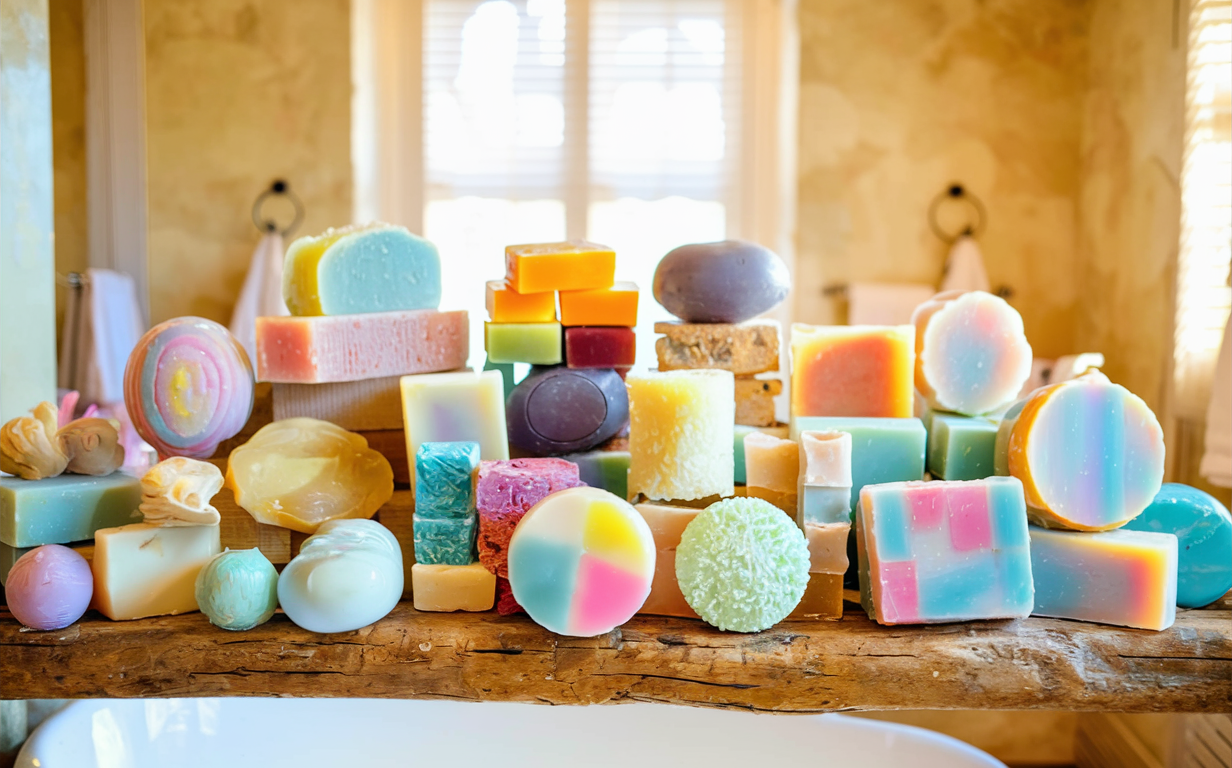
Choosing the right hypoallergenic soap is crucial for individuals with sensitive skin or allergies, ensuring a gentle yet effective cleansing experience without irritation. Here’s a guide to navigating the options and finding a soap that meets your skin’s needs:
Understand Your Skin Type
- Sensitive Skin: Look for soaps labeled specifically for sensitive skin, which are formulated to be extra gentle.
- Dry Skin: Seek out soaps with moisturizing ingredients like glycerin, shea butter, or aloe vera.
- Oily or Combination Skin: Consider soaps with natural astringents or clarifying ingredients, but ensure they’re still marketed as hypoallergenic to avoid harshness.
Check the Ingredients List
- Avoid Irritants: Steer clear of common irritants like sulfates, parabens, and artificial fragrances. Even some natural ingredients, like essential oils, can irritate sensitive skin.
- Favor Natural and Simple: Opt for soaps with a short ingredient list, prioritizing those with natural, nourishing components known for their mildness.
Look for Transparency and Certifications
- Transparency: Companies that provide detailed information about their product formulations tend to be more reliable. Look for brands that openly discuss their ingredients and their sources.
- Certifications: Certifications such as “Dermatologically Tested,” “Fragrance-Free,” or certifications from reputable organizations like the National Eczema Association (NEA) can provide an added layer of trust. These organizations often have stringent criteria for recommending products, focusing on those specifically formulated to be gentle and safe for people with eczema or similar skin conditions. For instance, the NEA’s Seal of Acceptance™ is awarded to products scientifically proven to be suitable for eczema or sensitive skin sufferers. Products that receive this certification have passed a comprehensive review of their ingredients, content, and formulation.
Patch Test the Product
- Before committing to a full-sized product, conduct a patch test:
- Apply a small amount of the soap to a discreet area of your skin.
- Wait 24 to 48 hours.
- If there’s no sign of irritation or allergic reaction, it’s likely safe for broader use.
Consider Environmental and Ethical Factors
- Cruelty-Free: Choosing soaps not tested on animals is not only an ethical decision but can also be an indicator of a brand’s commitment to gentle, safe ingredients.
- Sustainability: Consider the environmental impact of the soap, including packaging and sourcing. Soaps with biodegradable ingredients and recyclable packaging are preferable.
Read Reviews and Recommendations
- Peer Reviews: Online reviews can provide insight into how the soap performs for others with similar skin concerns.
- Dermatologist Recommendations: Soaps recommended by dermatologists or other skin care professionals are likely to be a safe bet.
- Be Wary of Marketing Claims
- Remember, the term “hypoallergenic” is not strictly regulated, so it’s important to do your due diligence rather than taking marketing claims at face value.
Consider Specialty Soaps for Specific Concerns
- If you have a skin condition like eczema, psoriasis, or acne, look for soaps formulated to address these issues while still hypoallergenic.
Common Misconceptions About Hypoallergenic Soaps
While hypoallergenic soap is a safer choice for sensitive skin, there are misconceptions to be aware of:
- Not a Guarantee Against Reactions: “Hypoallergenic” does not mean allergen-free. Individuals may still react to natural ingredients in these soaps.
- Regulatory Standards: The term “hypoallergenic” is not strictly regulated in many regions, meaning standards can vary between manufacturers.
Best Hypoallergenic Soaps for Sensitive Skin
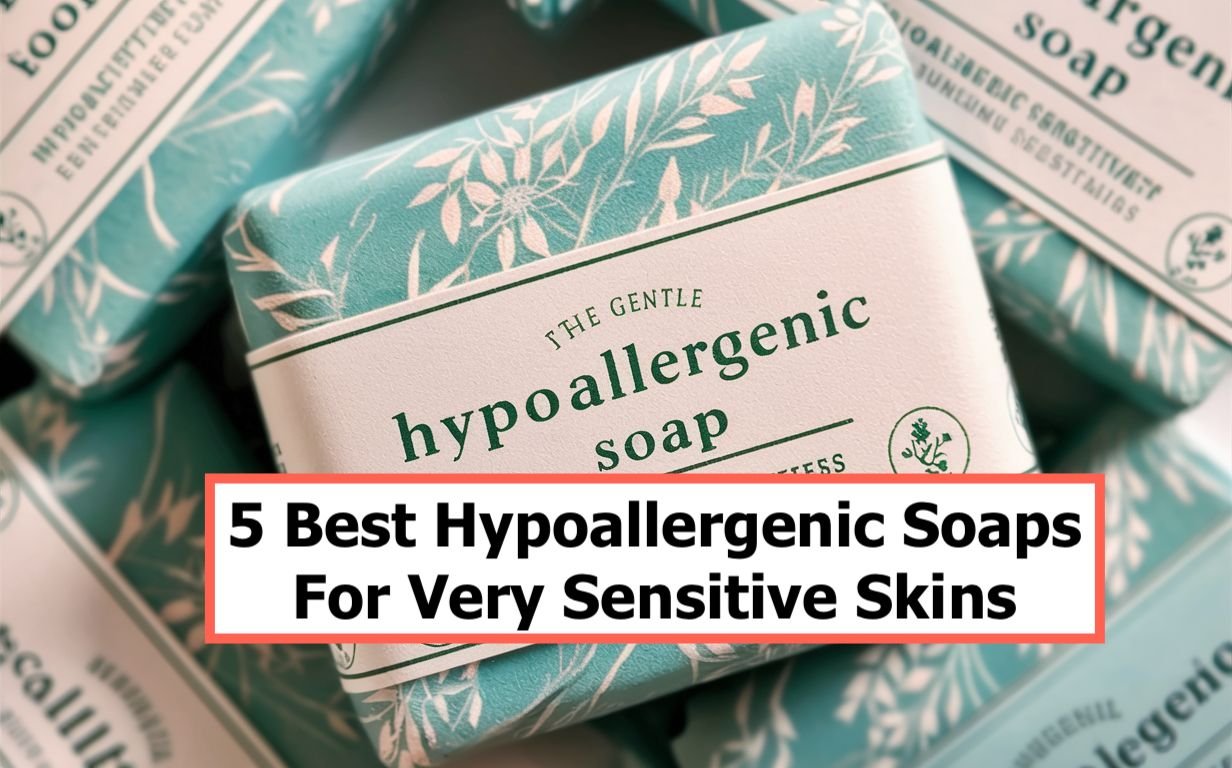
Here are some hypoallergenic soaps available on Amazon that you might find suitable for sensitive skin:
- Basis Sensitive Skin Bar Soap:
- This soap contains chamomile and aloe vera, providing gentle cleansing and soothing properties. It’s fragrance-free and suitable for all skin types.
- Check it out on Amazon
- Grisi Neutral, Cleansing and Hypoallergenic Soap:
- Softens and cleanses the skin without irritation. Fragrance-free and suitable for various skin types.
- Explore it on Amazon
- Dove Beauty Bar:
- More moisturizing than regular bar soap. Fragrance-free, hypoallergenic, and suitable for sensitive skin.
- View it on Amazon
- Cetaphil Bar Soap:
- Deep-cleansing face and body bar. Suitable for dry to normal, sensitive skin. Hypoallergenic, soap-free, and paraben-free.
- Find it on Amazon
Conclusion
Hypoallergenic soap offers a gentle yet effective solution for cleansing sensitive skin without the fear of irritation. By prioritizing natural ingredients and minimal additives, these soaps cater to those seeking a mild and nurturing option for their skincare routine. When choosing a hypoallergenic soap, it’s essential to consider your skin type, read labels for potential allergens, and perform a patch test to ensure compatibility with your skin.
In embracing hypoallergenic soaps, individuals with sensitive skin can enjoy the benefits of a product tailored to provide a soothing and hydrating cleanse, marking a step forward in personal care and wellness.
References:
- Environmental Working Group. (n.d.). “Skin Deep® Cosmetics Database.”
- “The Green Beauty Guide” by Julie Gabriel
- merican Academy of Dermatology: https://www.aad.org/public/diseases/eczema/types/contact-dermatitis
- National Center for Biotechnology Information: https://www.ncbi.nlm.nih.gov/pmc/articles/PMC4103450/
- The National Eczema Association: https://nationaleczema.org/
- The National Psoriasis Foundation: https://www.psoriasis.org/
